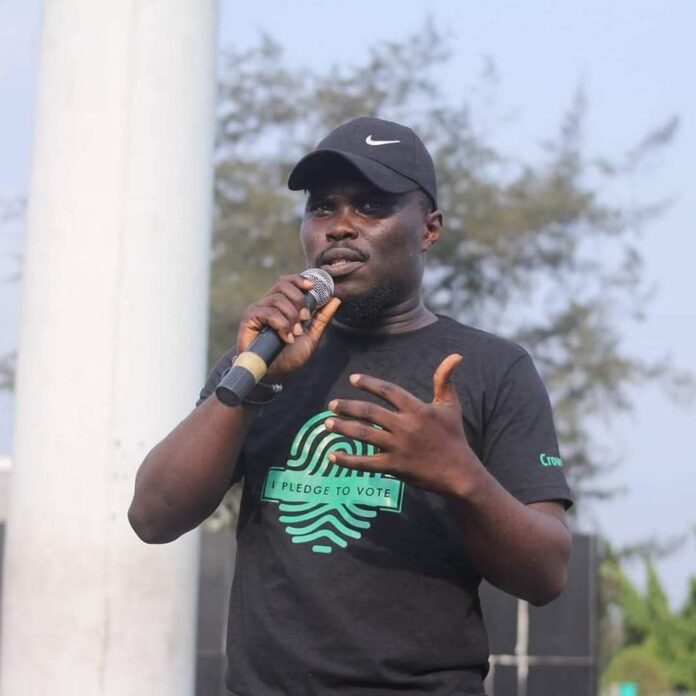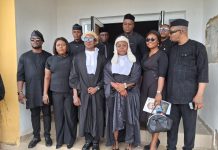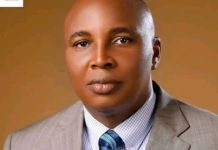About a fortnight ago, I and my friend, Justus Inspire Oseuno were having a chitchat on social media about how Calabar/Cross River’s economy could be revitalised using technology going forward.
Oseuno highlighted the idea that his pro-tech economic prosperity agenda would need politicians to make it come to fruition. And because he said his proposal could be the priority for the next set of politicians, Oseuno proposed how the average Nigerian could select the new kind of anticipated public officials who would make his economic proposal a priority. They’re:
1. vision/motivation,
2. political will,
3. strategic partnership, and
4. sincerity.
His idea, though seemingly simplistic, struck a chord with me and I have decided to interrogate it. I’ve decided to engage Oseuno’s because I’m not comfortable with the way we select public officials in this country. Again, I wish to through Oseuno’s show what is wrong with our style of selecting our political leaders. Also, I wish to suggest that we adopt Oseuno’s proposal for selecting a new set of politicians. Particularly, I wish to show that why our political elites fail could also be traceable to how they’re selected.
What’s wrong with how we elect our politicians? We select through sentiments:
1. religion,
2. ethnicity,
3. poverty, and
4. non-, mal-, and mis-education.
That is, we chose if the person is a native of where we are from. This is seen through the tradition of rotation of public office… Again, we are most likely to elect an intending politician if s/he is of my religion. On the contrary, if political candidate(s) person is a Christian and I’m a Muslim, whereas the Christian is more preferable to the Muslim, I would still vote against the Christian because of proximity of religion. We also cast our votes depending on our economic state at the time –here, we sell or buy votes, even when we know that the candidate/political party may be inefficient and ineffective, greed also plays a role here etc. Finally, we cast our votes depending on the level of our education especially the extent to which the electorate can fully appreciate the issues involved.
Of these five items, we can reduce everything into two:
1. poverty
2. non-, mis-, mal-education.
It’s poverty that compels us to think that the nearer a politician or intending politician is to me through religion and/or ethnicity, s/he’ll be disposed to serving me ‘rightly’ –that is, one will benefit from the national cake too. But, more often than not, it is not the case. For example, in the President Muhammadu Buhari’s administration, the north is worst hit in terms of insecurity and economy but, they voted more for him than any other region of the country. Then, it’s non-, mal-, and mis-education that facilitate our inability to comprehend the issues at stake such that we select wrongly.
This is sentimental voting, it’s far from rational voting. This contradicts Oseuno’s because it doesn’t look at what the anticipated public official wants to do (vision), will the visionary be willing to implement his/her vision (political will)? Whether the politically-willing person knows the right connection with which to explore other resources to implement his/her vision (partnership) and, is the wilfully disposed and well-connected visionary an ethical politician who is honest about service to the people?
How do you respond to the questions above without quality education and a degree of subsistent comfort? So, it’s safe to say poverty and non-, mal-, and mis-education have been deliberately weaponised against the average Nigerian electorate. Pretty wonder why our elections aren’t issues-based, our political parties don’t embody ideologies, etc.
This explains why an intending governor will prefer to attend burial, birthday, marriage, child dedication, child naming ceremonies of electorates, resort to questionable humanitarian assistances than tell you his/her vision for the state, his/her willingness to implement the vision, what connections s/he will have to explore and exploit in actualising his/her vision and the honesty requirement that authenticates the previous trio.
Concerning the quadruplets of vision, political willingness, strategic partnership and sincerity, how do we test these in an intending politician? For me, we need reason manifesting as insights and instincts not sentiments.
For instance, Nigeria’s ruling All Progressives Congress, APC and Muhammadu Buhari promised to address corruption, a comatose economy and insecurity in 2014 and through 2015 to 2022 circa 2023, they’ve failed as we’re now the poverty headquarters of the world, highly insecure/disunited and more corrupt according to international rating organisations. If the electorates were largely reasonable, they’d have via insight and instinct pierced through the façade of falsehood to discern the certainty of that proposition as well as the sincerity of Mr Integrity.
For Oseuno, it’s not enough that you’ve told Nigerians what you wish to do (vision), you must be willing? Granted that you’re willing, do you have the right connection like President Olusegun Obasanjo who employed the best hands during his presidency 1999 and 2007? Finally, even if you’ve all the vision, willingness to activate, connection of a strategic relevance, the most important question is: are you sincere… a man of integrity and the like? –for Oseuno, leadership and morality are sacrosanct requirements for a Nigerian politician.
For me, vision, will and connection depends on sincerity. How do we test or determine it? If an average Nigerian politician has sincerity s/he will resign or call for help when it’s obvious s/he can’t deliver on campaign promise(s). If an average Nigerian electorate is sincere, s/he won’t vote against his or her conscience (even after collecting money to vote a wrong candidate/political party). Sincerity nay integrity is a scarce leadership/followership commodity in Nigeria’s body-politic. How do we get it?








